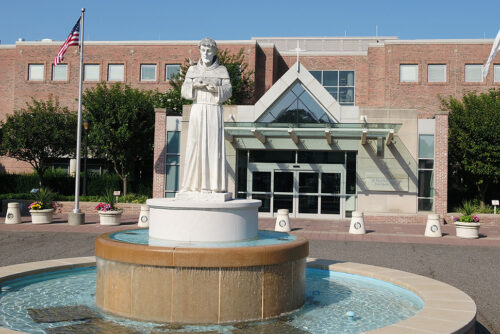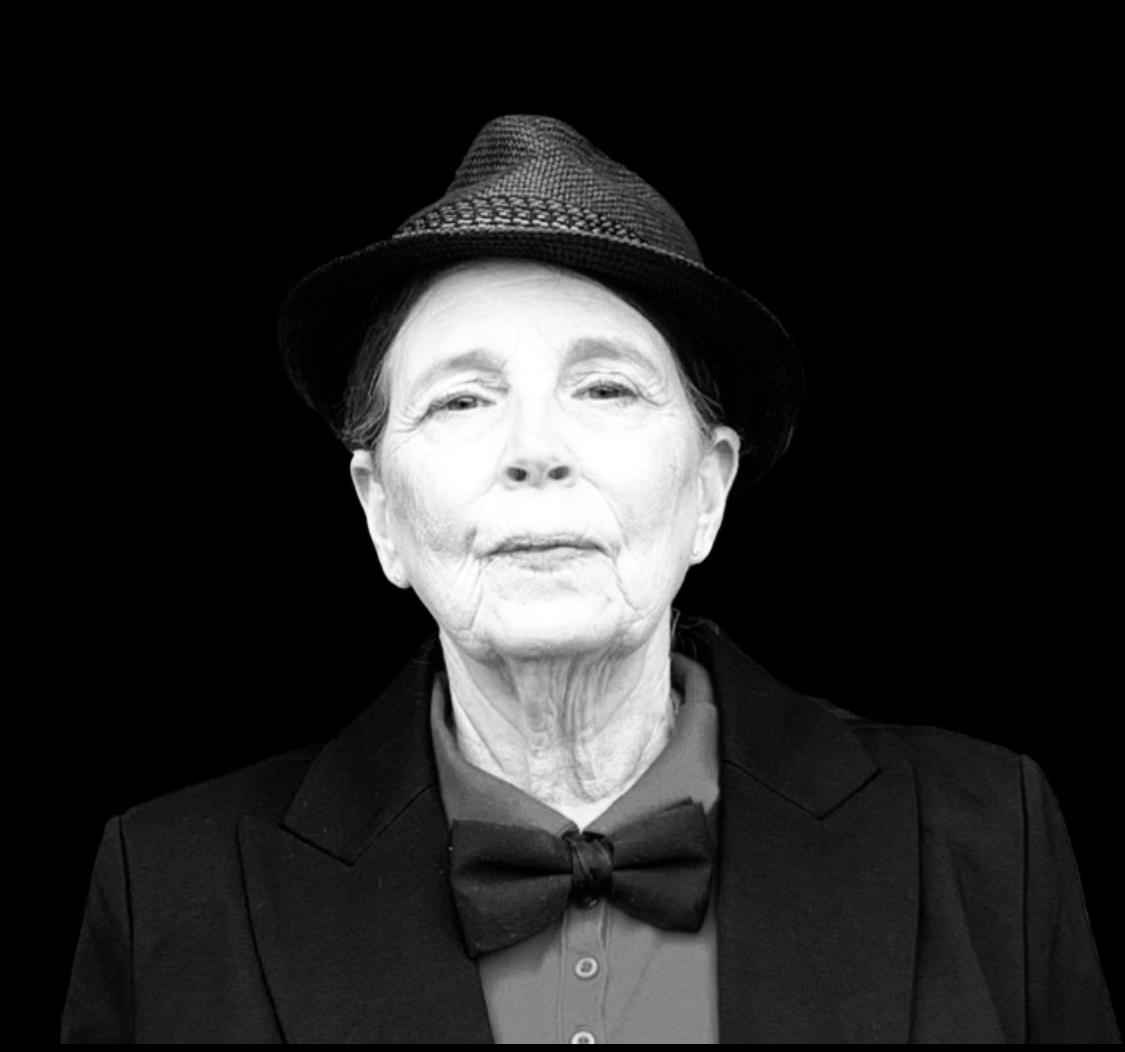Catholic Health has recently been recognized by the International Cardio-Oncology Society (ICOS) as a Center of Excellence and awarded a ‘gold status’ designation.
The certification places Catholic Health’s Cardio-Oncology programs among a small group internationally known for its quality of care, quality metrics, and program improvements.
The designation was awarded based on a large clinical volume driven by new clinics launched at the North Shore’s St. Francis Hospital and Heart Center, West Islip’s Good Samaritan University Hospital and Rockville Centre’s Mercy Hospital. In addition to clinical volume, Catholic Health’s research and various quality improvement projects contributed to the designation in addition to clinical volume.
Catholic Health’s Cardio-Oncology programs are led by Syed Saad Mahmood, MD, system director of Cardio-Oncology at Catholic Health, and Dr. Richard Shlofmitz, chairman of cardiovascular services and chairman of cardiology at St. Francis Hospital & Heart Center.
“Catholic Health is proud to receive this prestigious designation from the International Cardio-Oncology Society,” said Dr. Shlofmitz in a press release from Catholic Health. “We strive to provide quality care to all of our cardio-oncology patients, so it’s very fulfilling to see the hard work of our staff members paying off. I would like to congratulate this outstanding team for this well-deserved recognition.”
Dr. Mahmood explained that Cardio-Oncology is a subspecialty within cardiology. Dr. Mahmood is certified in Cardio-Oncology (ICOS), Heart Failure (HFSA) and Cardiovascular Diseases (ABIM). He helps cancer patients tolerate cardiac side effects of life-prolonging cancer therapy, such as heart failure, ischemia, and arrhythmias, as well as optimizing the heart health of cancer survivors. He completed internal medicine residency at Massachusetts General Hospital (MGH), Harvard Medical School, and his cardiovascular disease fellowship at Weill Cornell Medicine. He also completed a subspecialty fellowship in Cardio-Oncology at Brigham and Women’s Hospital and MGH, Harvard Medical School. He is a graduate of Case Western Medical School.

“Catholic Health’s Cardio-Oncology services take care of cancer patients throughout their cancer journey before, during and after cancer therapy because cancer patients have a unique profile when it comes to cardiovascular disease and cardiovascular events,” said Dr. Mahmood. “A majority of what we do is actually helping cancer patients during active cancer treatment to tolerate the life-prolonging cancer therapy they’re going to get.”
“Sometimes this life-prolonging cancer therapy is associated with off-target effects that impact the heart,” said Dr. Mahmood. “The subspecialty’s entire job is to keep the heart from competing for attention so that the singular focus can continue to be on getting the patient through the cancer therapy, which the oncologist thinks gives them the best chance of success without causing any immediate or long term impact on the heart.”
Catholic Health’s large clinical volume is a system-wide effort across its six hospital networks.
“We really streamlined and synergized our efforts with our oncology colleagues. So, our oncology division here is led by Dr. Bhoomi Mehrotra, a national leader in the field of oncology. And they have a very large clinical volume of cancer patients here. And these patients are getting cutting-edge treatment, including immunotherapy, oral targeted therapies, etcetera,” said Dr. Mahmood. “We worked very closely with them and established a relationship whereby not only do we see these patients in the clinic, but also make sure to get these patients in immediately.”
“We created a very nice synergistic referral pathway to have these patients seen. And we’ve really embedded ourselves with the oncology service here,” said Dr. Mahmood. “We actually are one of the few places in the country with a dedicated inpatient cardio-oncology service. So we will follow the patients both in clinical and while in the hospital.”
Additionally, Catholic Health has such substantial patient numbers because of a strategic partnership with Memorial Sloan Kettering. “We see a very large volume of their Long Island patients. Obviously, the internal Catholic health volume is the largest contributor to our volume because the oncology population at our hospital network is very vast. Then, we see patients from pretty much every single area, oncology practice, or institution.”
Catholic Health sees patients from New York City and eastern and western Long Island. The ICOS has criteria for how many patients a hospital sees, and Catholic Health far surpasses that medical volume, shared Dr. Mahmood.
While Catholic Health treats all cancer patients at high risk of cardiac side effects or are already experiencing side effects, the most common cancer patients they see are breast cancer, leukemias and lymphomas.
“Cardio-oncology as a field stands on the shoulders of our oncology colleagues because they have made rapid advancements in improving cancer survival. Year after year, the number of patients who were both diagnosed and survivors increase,” said Dr. Mahmood. “Because of that volume, we are seeing more and more cancer patients who are living after cancer and also during cancer. So the largest volume is breast cancer, but that is almost a sign of success because there are these very efficacious agents, and there’s targeted therapies that have improved survival.”
According to the press release from Catholic Health, “Over the last several years, the cardio-oncology field has grown as research has been conducted and cancer therapies have become more successful.”
“St. Francis is world-renowned for its interventional cardiology research. It’s absolutely cutting-edge. We are very active in our cardio-oncology field as well,” said Dr. Mahmood. “I am the co-PI (Principal Investigator) on two large, multi-centered registries, both on immunotherapies.”
Dr. Mahmood’s research has recently focused on immunotherapies such as immune point check inhibitors and chimeric antigen receptor T (CAR T) cell therapy.
“Immune checkpoint inhibitors are basically antibodies that rev up the immune system and tell the immune system to attack cancer. Because until now, cancer has learned to evade our immune system,” said Dr. Mahmood. “CAR T cell therapy is the sniper approach where it’s the first cell-based gene FDA-approved gene modification therapy. White blood cells are actually extracted during a hospitalization; they’re then sent to the company or the lab, which then uses a retrovirus or other modification techniques to genetically alter the T cells, the immune cells of the patient’s body so that they express a receptor that targets that particular cancer.”
Being recognized by the ICOS for all of the incredible life-prolonging research Dr. Mahmood and the Catholic Health Cardio-Oncology team have been doing now allows them to build their success further.
“We are very privileged to be given gold status. We joined a limited pool of gold status centers of excellence, such as the Mayo Clinic, the Women’s Health Center, and University College London. So for us, it allows us to take things to the next level in terms of further quality improvement,” said Dr. Mahmood.
“We’re very excited. We’re very grateful to our patients for entrusting us to manage them and partner with them in their cancer journey. And so that is the greatest privilege. Because I started with cardiology and oncology, it’s truly a privilege to take care of some of the sickest patients in the hospital,” said Dr. Mahmood.
“Catholic Health’s advanced and innovative program stood out to ICOS evaluators as a leader in the marketplace for cardiac cancer care,” said Steve Casselli, executive director of ICOS. “We now have millions of long-term cancer survivors, and an inordinate number of them end up with cardiovascular problems, often affecting their mortality. Catholic Health clearly has shown that their clinical teams effectively help their patients to manage their evolving care needs.”
To learn more about Catholic health and the Cardio-Oncology program, visit chli.org

























